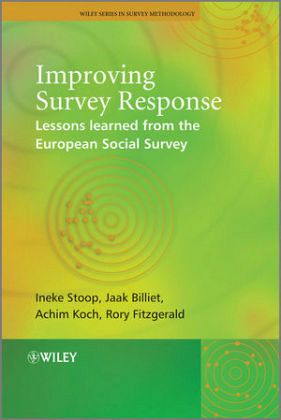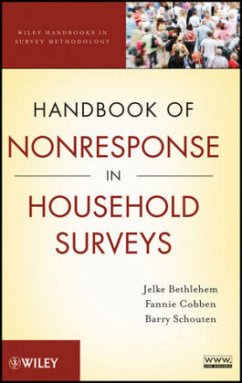
Improving Survey Response
Lessons Learned from the European Social Survey

PAYBACK Punkte
55 °P sammeln!
Survey Nonresponse in Europe discusses techniques that enable the survey statistician to estimate the level of nonresponse, and adjust for it accordingly in order to improve the results. All the fundamental issues in nonresponse area are discussed, for example, nonresponse bias, the various causes of nonresponse, and measurement tools to assess the efficiency of fieldwork strategies. With real life case studies from twenty-five countries, the book uses a wealth of data taken from the European Social Survey (ESS) and is accompanied by a Web site hosting the survey data.












